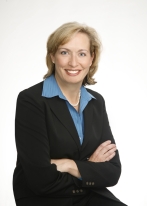Turn Around or Turmoil? An Inside Look at the Recovery
By Karen Kotowski, CAE, CMP
 At this year's CMP Conclave, attendees got to hear from a distinguished industry panel on everything from fuel prices to the meeting rooms of the future. Moderated by Steven Hacker, CAE, FASE, President IAEE and 2012 CIC Board of Directors Chair, CMPs at the Conclave heard insider opinions and insights from Dave Nostrand, Vice President,Sales TheAmericas, Convention/Resort Hotels, Marriott International; Bill McMillan, Senior Director of Sales, Visit Charlotte and Susan Hennig, Sales Manager, Eastern USA, United Airlines.
At this year's CMP Conclave, attendees got to hear from a distinguished industry panel on everything from fuel prices to the meeting rooms of the future. Moderated by Steven Hacker, CAE, FASE, President IAEE and 2012 CIC Board of Directors Chair, CMPs at the Conclave heard insider opinions and insights from Dave Nostrand, Vice President,Sales TheAmericas, Convention/Resort Hotels, Marriott International; Bill McMillan, Senior Director of Sales, Visit Charlotte and Susan Hennig, Sales Manager, Eastern USA, United Airlines.
Asked about the single development or change within their segment of the industry within the last five years, the overarching themes clearly centered on technology and economic issues and other challenges which forced a change in business practices.
McMillan shared that for Charlotte the sports market has increased from 10% to about 50% of their mix. This happened in large part because after 9-11 people stopped travelling by air, but they would load the family into the car to take kids to their sports competitions. They started to see this as an increasingly important market for them as youth sporting events were filling weekends that would normally go empty. This market has become "an economic development imperative for the city" and so has the need to look for other opportunities like this to hedge against declines in other markets.
Nostrand noted that the explosion of Internet has been a game changer not only in bookings for transient business but also group leads. Currently, sixty to seventy percent of all leads are coming over Internet. "The phones are quiet, considering that a planner can send 30-40 leads at once" rather than one by one over the phone or fax.
For the airlines, the unbundling of amenities has been the biggest change for the legacy airlines, according to Hennig. For Southwest and some of the other low cost airlines, it was their model. Now the legacy carriers have followed not only for cost savings but to "customize the experience" for flyers. Another factor has been the wild swings in fuel prices, and airlines have had to manage through these swings by right-sizing capacity, forming alliances to maximize partner airline flights, and transitioning to a more fuel-efficient fleet. Hennig noted that every one dollar increase in a barrel of oil equates to a $100 million cost to United on an annualized basis.
When asked to think ahead five years and share with "bankable" forecasts Hennig noted that all airlines are looking at alternate fuels and building more efficient planes. The 787 will be a game changer.
With the trend in convention center building expansion and new builds, the supply of meetings facilities is increasing, and some second tiers will be able to go after first tier business, according to McMillan.
Marriott's Nostrand sees that similar to improvements seen in guest room comfort and amenities, hotels, including Marriott, will be focusing on meeting rooms, how to improve them to keep up with technology but also improve the look, feel and ability to customize learning environments. And like the airlines, he sees greater customization of experience in sleeping rooms as consumers become accustomed to choosing among options and amenities.
The session provided a lot of great insights and sharing, but one thing all agreed that we won't see in the future is free Internet, (without negotiation) either in sleeping or meeting rooms, airlines or convention centers, much to the chagrin of the CMPs in the room. With most of us carrying two or three devices, bandwidth needs are increasing, costs to the providers will continue to increase, and from what we learned about customization of experience, the Luddites in the next room or airplane seat won't want to pay for it.
Events Industry Council
 At this year's CMP Conclave, attendees got to hear from a distinguished industry panel on everything from fuel prices to the meeting rooms of the future. Moderated by Steven Hacker, CAE, FASE, President IAEE and 2012 CIC Board of Directors Chair, CMPs at the Conclave heard insider opinions and insights from Dave Nostrand, Vice President,Sales TheAmericas, Convention/Resort Hotels, Marriott International; Bill McMillan, Senior Director of Sales, Visit Charlotte and Susan Hennig, Sales Manager, Eastern USA, United Airlines.
At this year's CMP Conclave, attendees got to hear from a distinguished industry panel on everything from fuel prices to the meeting rooms of the future. Moderated by Steven Hacker, CAE, FASE, President IAEE and 2012 CIC Board of Directors Chair, CMPs at the Conclave heard insider opinions and insights from Dave Nostrand, Vice President,Sales TheAmericas, Convention/Resort Hotels, Marriott International; Bill McMillan, Senior Director of Sales, Visit Charlotte and Susan Hennig, Sales Manager, Eastern USA, United Airlines.